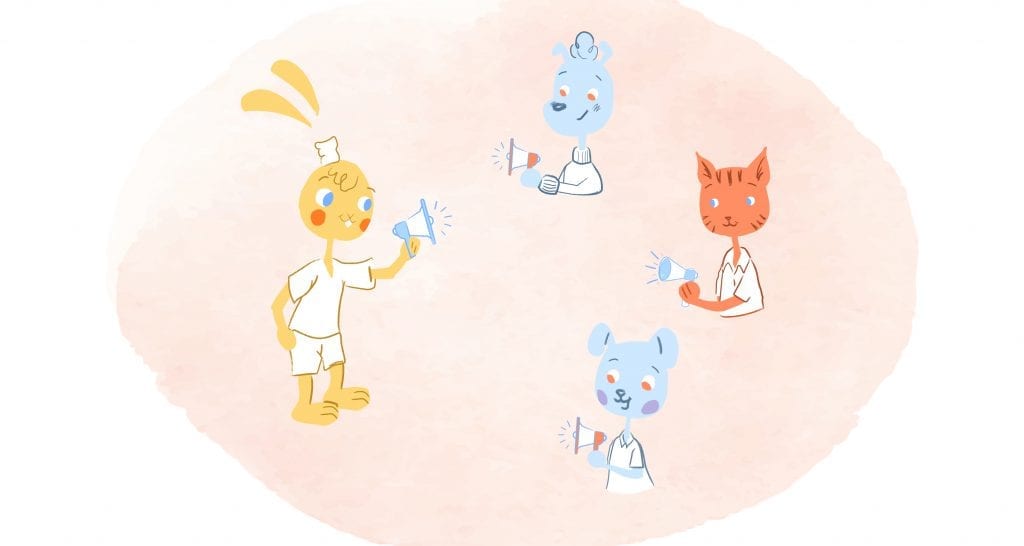

The other night I thought that as soon as my head hit the pillows, I would be out cold. I had one of those non-stop days. You know, getting ahead of work and attending to household responsibilities like laundry.
A peculiar thing happened. I laid there wide awake.
So, I decided to read a book to calm down. When I felt drowsy enough, I put the book down but continued to toss and turn. Frustrated, I grabbed my phone and turned on a podcast until I eventually fell asleep.
I was well aware that it was past my bedtime. I also knew that I was going to pay for not going to bed on time by dragging all day tomorrow. But, I just couldn’t help myself.
Of course, I’m not an anomaly. In fact, this such a prevalent problem that the phenomenon has its own name; it’s called “the revenge bedtime procrastination.”
What is revenge bedtime procrastination?
“Revenge bedtime procrastination is just a cry from overworked people, and they’re actually trying to put off bedtime just a little bit so they can reclaim something for themselves,” said Dr. Rajkumar Dasgupta, assistant professor of clinical medicine at the University of Southern California Keck School of Medicine in Los Angeles.
More directly, it’s sacrificing sleep so that you have more leisure time.
For example, if you’re exhausted and it’s 10 p.m., you might decide to watch a movie? The reason, you didn’t feel that you had much downtime during the day. So, you want to make up for that, relax, and enjoy a movie.
The problem? You’re breaking your normal sleep schedule by falling asleep until after midnight. And, you’re willing to accept the consequences — mainly that you’ll be a zombie tomorrow at work.
Another factor could be an unplanned circumstance. Maybe your favorite baseball team goes into extra innings causing you to it the hay later than planned. Or, you aren’t falling well or dealing with a restless child or dog.
Where did the term revenge bedtime procrastination originate from though? Well, bedtime procrastination first surfaced in a 2014 study out of the Netherlands. Appearing in Frontiers in Psychology, in 2018, the authors stated that those who tried to “resist desires” during the day were more likely to be a bedtime procrastinator.
The link between COVID and sleep.
Another cause is that the lines between work and life have become too intertwined. For instance, you’re responding to emails or Slack messages at all hours of the night instead of enjoying your leisure time. So, to recapture some much-needed “me time,” you stay up later.
For many, this has been the case following COVID-19. Many of us no longer had a clear separation between work and life since our homes became our workplaces. We were also more stressed and couldn’t stop ourselves from doomscrolling.
How bad has gotten? Well, since the pandemic started, 40% of people have reported sleeping problems.
What’s revenge got to do with it.
As the revenge part? That came about in 2016 when it took off on the internet in China. “Revenge bedtime procrastination” is the literal translation is “staying up late in a self-revenge way.”
The phrase finally went viral in English following a tweet by New York-based journalist Daphne K. Lee. She defined this as “a phenomenon in which people who don’t have much control over their daytime life refuse to sleep early in order to regain some sense of freedom during late night hours.”
The importance of sleep.
It might some harmless to occasionally stay past your normal bedtime. After all, at least you’re getting some amount of z’s, right?
Occasionally, this might be acceptable. However, it’s a myth that you can catch up on sleep. Moreover, bedtime procrastination can lead to sleep deprivation.
Why’s that concerning? Well, falling short on slumber doesn’t just make you so tired that you chug multiple pots of coffee. It can cause symptoms like;
- Being more prone to accidents or making mistakes.
- Degrades decision-making, thinking, and memory.
- Difficulty concentrating.
- Mental health disorders such as anxiety or depression.
- Irritability, which can impact your relationships.
What’s more, a lack of sleep can also cause physical health conditions like;
- Heart disease
- Diabetes
- Obesity
- Hormone-related problems
- Weaker immune system
- Chronic pain
As if that’s not bad enough, a lack of sleep can reduce self-regulation and impulse control. And, it also raises the odds of dying early.
In short, sleep deprivation negatively affects all facets of your life. As such, it needs to be a top priority.
Getting revenge on revenge bedtime procrastination.
Ideally, we all should be getting between 7-9 hours of quality sleep per night. For adolescents and teenagers, it’s more. But, how can we win this fight against bedtime procrastination? Well, here are 6 recommendations.
1. Honor your sleep chronotype.
“According to sleep expert Dr. Michael Breus, there are four different chronotypes or circadian rhythm personalities,” writes Abby Miller in another Calendar article. “He suggests that you determine which one you are so that you can mirror the sleep-wake habits that best describe you.”
- Bear. For most of us, our sleep-wake patterns follow the sun. As such, you’re “ready for intense tasks smack in the middle of the morning,” but feel a dip by mid-afternoon.
- Lion. Lions are early risers. “These are the go-getters, the leaders, the type-A movers, and shakers.” The downside is that they usually have to go to bed earlier.
- Wolf. Wolves are nocturnal loners. That means that they get a later start and have two peak periods — noon to 2 pm and late afternoon/early evening.
- Dolphin. Since dolphins are light sleepers, they’re more likely to have irregular sleep routines. They’re also perfectionists and do their best work from mid-morning through early afternoon.
“To find out what your animal, track your time and take Dr. Breus’ sleep chronotype quiz,” she advises. “After that, re-organize your day so that you can align your sleep pattern and work schedule. For example, if you’re a lion, then you would want to tackle your most important work bright and early.”
2. Chillax in the evening.
As you should know, your morning routine can make or break your day. But, your evening routine is equally important. And, that should conclude with your bedtime ritual.
Preferably, this should take place around 30 to 60 minutes prior to bed. And, it should contain only activities that make you feel relaxed. Some suggestions would be;
- Taking a warm bath or shower.
- Meditating or doing light stretches.
- Focusing on your breathing.
- Listening to soothing music.
- Reading a book.
3. Resist the blue light special.
Electronic devices, such as your phone or tablet, emit blue light. In case you weren’t aware, this reduces melatonin levels. Melatonin is the chemical that’s responsible for your wake/sleep schedule.
What’s that mean? When these levels dip, you’ll have more difficulty falling asleep.
Additionally, blue light can stimulate your brain. Which, as you might have guessed, makes sleep more of a challenge. And, if you keep your phone close, notifications that you receive at night can interrupt your sleep.
The solution? Avoid blue light at least an hour before bed. You should also stop using your phone as an alarm and place it across your room.
4. Keep your bedroom sacred.
Your bed needs to be reserved only for sleep and sex. Nothing else. What’s more, your bedroom should be cool, dark, and quiet.
Preferably, set your thermostat between 60°F and 67°F, invest in blackout curtains, and even earplugs. Also, don’t skimp on your pillows and mattress.
5. Release stress before bed.
If you’re putting off sleep because you’re worrying, then address these thoughts before laying down. For instance, you could jot down your worries so that they’re out of your head.
Other suggestions include;
- Planning and organizing tomorrow by prioritizing your lists.
- Journaling.
- Meditating.
- Purchasing a weighted blanket to reduce anxiety.
6. Use your online calendar.
What does your calendar have to do with hitting the hay? In a previous Calendar article, Angela Ruth argues that with your trusty calendar, you can add structure to help encourage a better night’s rest, such as;
- Follow a consistent routine. “It’s easier to get sleep when you follow a routine,” writes Angela. “If you don’t make time in your schedule for rest, it may become sporadic. Adjust your rhythm gradually, or you could overcorrect — and oversleeping can leave you feeling groggy and unproductive.”
- Take charge of naps. “When you nap, use your online calendar to hold yourself accountable,” she advises. “Make sure you’re not taking one too late in the day and set an alarm to ensure your power nap doesn’t turn into a snooze fest.”
- Manage your eating and drinking. “Just as you shouldn’t be napping too late in the day, there are other things that should be reserved for earlier hours,” she adds. Examples would be avoiding caffeine later in the day or eating too late at night.
- Add exercise to your day. Block out a regular time during the day for physical activity as this promotes sleep.
- Kick bad habits. You know which vices I’m referring to. Smoking cigarettes, drinking, and eating junk food are all bad habits that you need to ditch. You can use your calendar to set goals and track your progress.
- Keep things tidy. Set a recurring event to declutter and clean your bedroom to reduce stress. And, don’t forget to regularly wash your bedding.
If you’ve done all of the above and are still struggling with sleep, then make an appointment with your physician. The sooner you get to the root cause, the faster you can nip bad sleep habits from robbing you of another good night’s sleep.
Image Credit: mikoto.raw; pexels











John Rampton
John’s goal in life is to make people’s lives much more productive. Upping productivity allows us to spend more time doing the things we enjoy most. John was recently recognized by Entrepreneur Magazine as being one of the top marketers in the World. John is co-founder and CEO of Calendar.